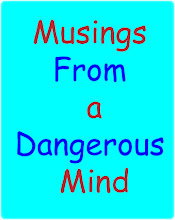If we look at the elections process that much of the nation follows where party primaries are followed by a general election, the Presidency is alone in how little say the vast majority of voters have in the candidates themselves. In many cities where you have more than two candidates vying for the party nomination, a citywide primary is held and either one candidate wins a clear majority and becomes the nominee or the race moves into a runoff where the two two candidates in vote count face the electorate again. For President we see primary elections and assorted caucuses spread out over several months, and only one or two many actually have any significant impact on the party's choice of candidates.
There is nothing in the Constitution that gives the residents of Iowa and New Hampshire de facto control of our process for selecting candidates to represent the two major parties in the Presidential election. What about the states that come toward the middle of end of the electoral process, if the candidates for President are already decided what incentive is there to go to the poll? This is one of the central arguments made when we discuss the calling of the national elections. In years where the race for President is decided early and called, there was a significant drop off in voters in the Pacific time Zone and West showing up for the polls, why...because the major race has already been decided.
There is much to be debated when we speak of reforming our electoral process. Mark Crispin Miller's book Loser Take All: Election Fraud and The Subversion of Democracy, 2000 - 2008


No comments:
Post a Comment